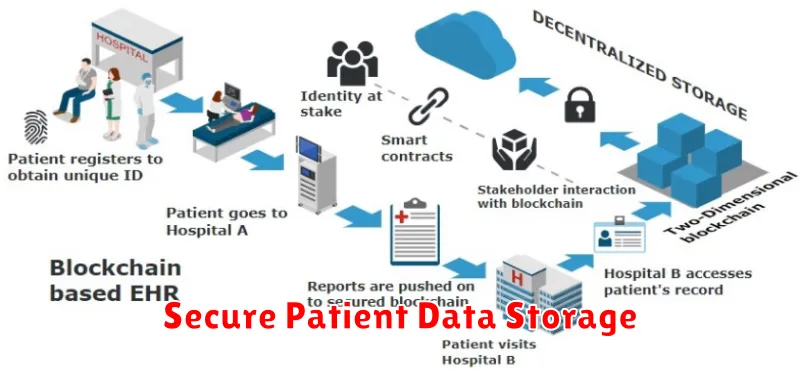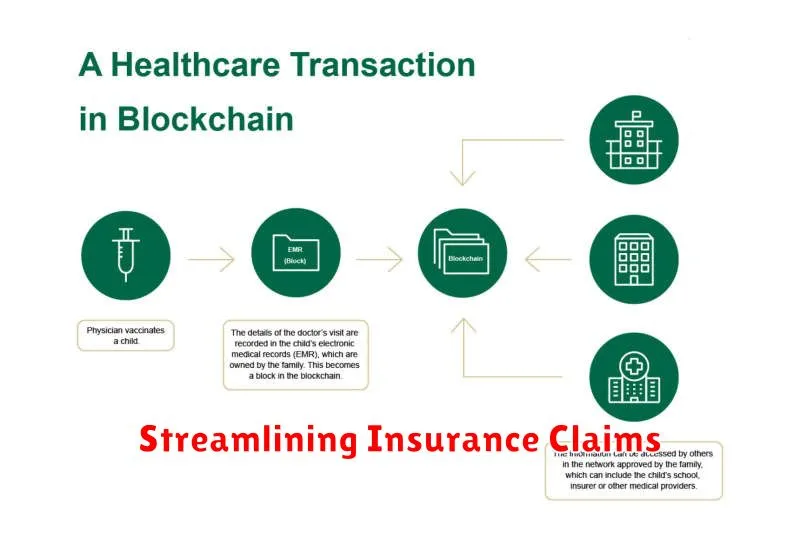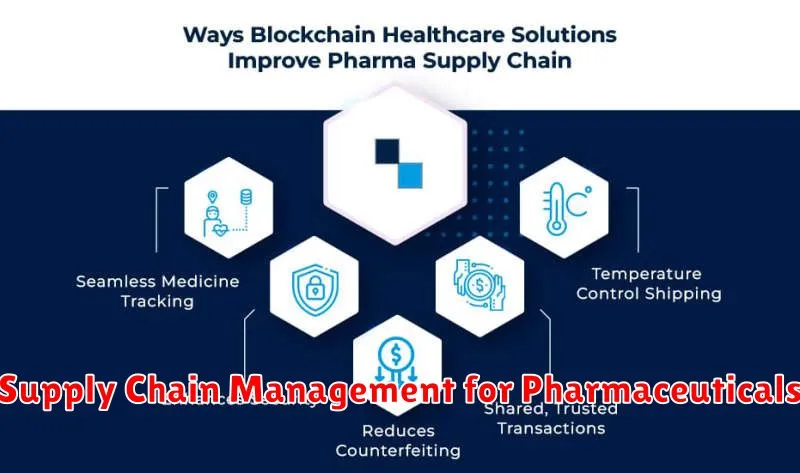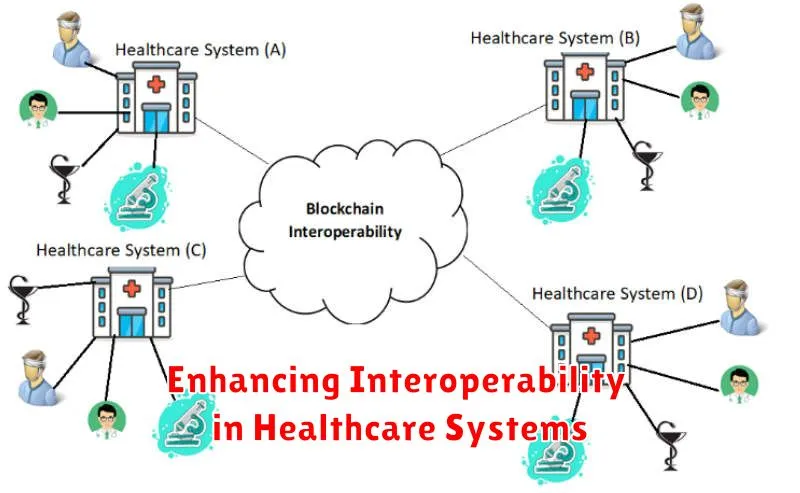The healthcare industry is ripe for disruption, and blockchain technology is emerging as a transformative force. This article explores how blockchain’s decentralized and secure nature is revolutionizing patient data management, supply chain transparency, and clinical trials, ultimately improving efficiency, security, and patient care. Learn how this innovative technology is addressing critical challenges and paving the way for a more trustworthy and accessible healthcare system.
Secure Patient Data Storage

Blockchain technology offers a revolutionary approach to secure patient data storage within the healthcare industry. Its decentralized and immutable nature provides a significant advantage over traditional centralized systems.
With blockchain, patient data is encrypted and distributed across multiple nodes, making it extremely difficult for unauthorized individuals to access or alter information. This enhances data security and patient privacy, significantly reducing the risk of breaches and data leaks.
Furthermore, blockchain’s transparency allows for auditable data access. Every transaction and data modification is recorded on the blockchain, creating a permanent and verifiable record. This improves accountability and trust in data management.
The inherent security and transparency features of blockchain technology promise a future where patient data is better protected, fostering greater confidence in the healthcare system and improving the overall patient experience.
Streamlining Insurance Claims

Blockchain technology offers significant potential for streamlining the healthcare insurance claims process. Its decentralized and transparent nature allows for faster and more secure processing of claims.
By creating a shared, immutable ledger, blockchain eliminates the need for intermediaries, reducing processing time and administrative overhead. Data integrity is significantly improved, minimizing fraud and disputes.
Smart contracts can automate claim verification and payment processes, further accelerating claim settlements. This automation also reduces the potential for human error and ensures consistency in processing.
The increased transparency and security provided by blockchain empowers both patients and insurers. Patients can easily track the status of their claims, while insurers benefit from reduced costs and improved operational efficiency.
Ultimately, the integration of blockchain into healthcare insurance promises a more efficient, transparent, and secure claims process, ultimately benefiting all stakeholders.
Supply Chain Management for Pharmaceuticals

The pharmaceutical supply chain is notoriously complex, involving numerous intermediaries and significant logistical challenges. Counterfeit drugs pose a major threat, impacting patient safety and the industry’s reputation. Inefficient tracking and tracing methods contribute to delays, waste, and high costs.
Blockchain technology offers a transformative solution. Its decentralized, immutable ledger provides enhanced transparency and traceability throughout the entire supply chain. Each drug’s journey, from manufacturing to dispensing, can be recorded and verified, reducing the risk of counterfeiting and ensuring product authenticity.
Smart contracts, automated agreements executed on the blockchain, can streamline processes such as ordering, payment, and delivery. This automation increases efficiency and reduces administrative overhead. Improved data visibility allows for better inventory management and predictive analytics, minimizing stockouts and waste.
Furthermore, blockchain enhances supply chain security. By providing a tamper-proof record, it improves accountability and facilitates faster recall processes in case of product defects or contamination. The increased trust and transparency fostered by blockchain can build stronger relationships between manufacturers, distributors, and healthcare providers.
In summary, blockchain’s application in pharmaceutical supply chain management promises a safer, more efficient, and cost-effective system, ultimately benefiting patients and the entire healthcare industry. Improved traceability, enhanced security, and streamlined processes are key advantages leading to better patient outcomes.
Decentralized Clinical Trials

Blockchain technology is revolutionizing clinical trials by enabling decentralized and secure data management. Traditional trials rely on centralized systems, leading to inefficiencies and security vulnerabilities. Blockchain offers a solution by creating a transparent and immutable record of patient data, securely shared among authorized participants.
This decentralized approach streamlines the recruitment process, improves data integrity, and accelerates trial completion. Patients gain greater control over their data, and researchers benefit from improved data quality and reduced administrative overhead. The use of smart contracts further automates processes, enhancing efficiency and reducing costs.
The enhanced security and transparency provided by blockchain also bolster patient privacy and trust. Data breaches are mitigated, and the potential for manipulation or fraud is significantly reduced. Ultimately, decentralized clinical trials promise to improve the speed, efficiency, and overall effectiveness of medical research.
Enhancing Interoperability in Healthcare Systems

One of the most significant challenges facing the healthcare industry is the lack of interoperability between different systems. Patient data is often siloed within individual hospitals, clinics, and pharmacies, making it difficult for healthcare providers to access a complete and accurate picture of a patient’s health history.
Blockchain technology offers a potential solution to this problem by providing a secure and transparent platform for sharing patient data. By utilizing a distributed ledger, blockchain can facilitate the seamless exchange of information between different healthcare organizations, improving data accessibility and efficiency.
A blockchain-based system allows authorized users to access only the necessary information, while maintaining strict data privacy and security. This is crucial for complying with regulations like HIPAA and GDPR. The immutable nature of blockchain also ensures that the data is tamper-proof and trustworthy.
Furthermore, blockchain can streamline the process of patient consent management, allowing individuals greater control over their own health information. The enhanced transparency and security offered by blockchain can lead to significant improvements in patient care and healthcare outcomes.
